Estimated Read Time: 6 minutes
Research shows that offering sensory activities, or sensory stimulation therapy, can reduce the effects of Dementia.
This topic hits close to home, as I recently visited my grandma who’s been living with Dementia for over 5 years now.
She struggled to recognize and communicate with us, so I was shocked when my mom pulled out her phone and played the song, “Beer Barrel Polka” (a popular song during WWII), and my grandma recited the entire chorus, word-for-word.
This is the power of sensory stimulation.
What is sensory stimulation therapy? How can you create more empowering moments for patients and loved ones?
Let’s discuss.
What is Sensory Stimulation Therapy?

Sensory stimulation therapy is a collection of activities focused on touch, taste, smell, sight, and hearing to stimulate the synapses in the brain.
As our brains age, our synapses become less active, which causes a decreased response to our senses. In an advanced state, this causes symptoms like:
- Memory loss
- Communication challenges
- Disorientation in familiar places
- Mood and personality changes
- Trouble sleeping
- Poor judgment
A sensory activity aims to activate these synapses and reduce the behaviors mentioned above.
Benefits of Sensory Activities for Dementia Patients
By stimulating as many senses as possible, Dementia patients connect with their surroundings in a more exciting and engaging way.
Many patients experience cognitive improvements such as:
- Better memory recall
- Increased concentration
- Feelings of confidence
- Increased well-being
- Inspiration to communicate socially
8 Sensory Activities for Dementia Patients
1. Spend Time Outdoors

Nature provides a sensory experience unlike any other, healthily engaging all our senses.
Go for a walk, pick flowers, lay on the beach, eat ice cream on a park bench, or do any safe outdoor activity that engages the body and mind.
This activity is vital for those spending most of their time indoors, especially in long-term care facilities.
2. Playing Board and Card Games
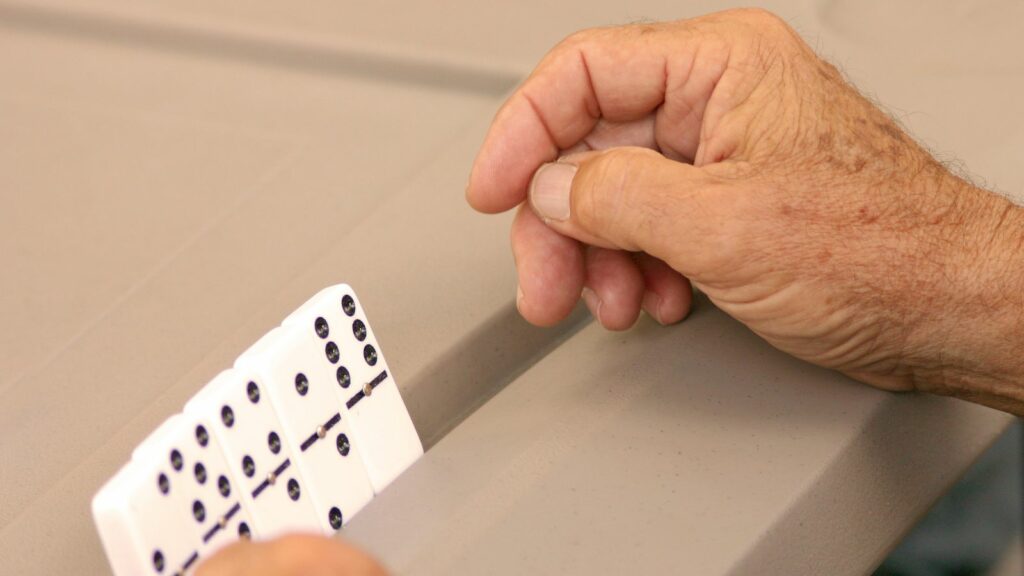
Depending on your patient or loved one’s condition, many board and card games are awesome sensory stimulators.
These may not stimulate all the senses, but games like Dominoes, Scrabble, and Yahtzee encourage focus, critical thinking, and engagement with others.
Popular card games like Cribbage, Hearts, and Go Fish also provide mental stimulation, familiarity, and social engagement.
Consult with your residents and learn their preferred games, then stock up so everyone can enjoy!
3. Hand Massages

A hand massage is a great way to relax a person with Dementia.
The sensation of touching hands is familiar and can encourage physical and mental relaxation.
You can also use essential oils to engage more senses as you massage their hands.
Calming fragrances can further stimulate the brain, producing serotonin and inducing relaxation.
4. Reading Aloud

Seniors with Dementia may lack the ability to interact socially, so you should encourage them to do so in private.
As such, a common sensory activity is reading aloud with them.
This way, they practice verbal communication, which may inspire them to speak more freely in social situations.
Book clubs, writing workshops, and poetry readings are great ways to connect groups for healthy interactions.
5. Music Therapy
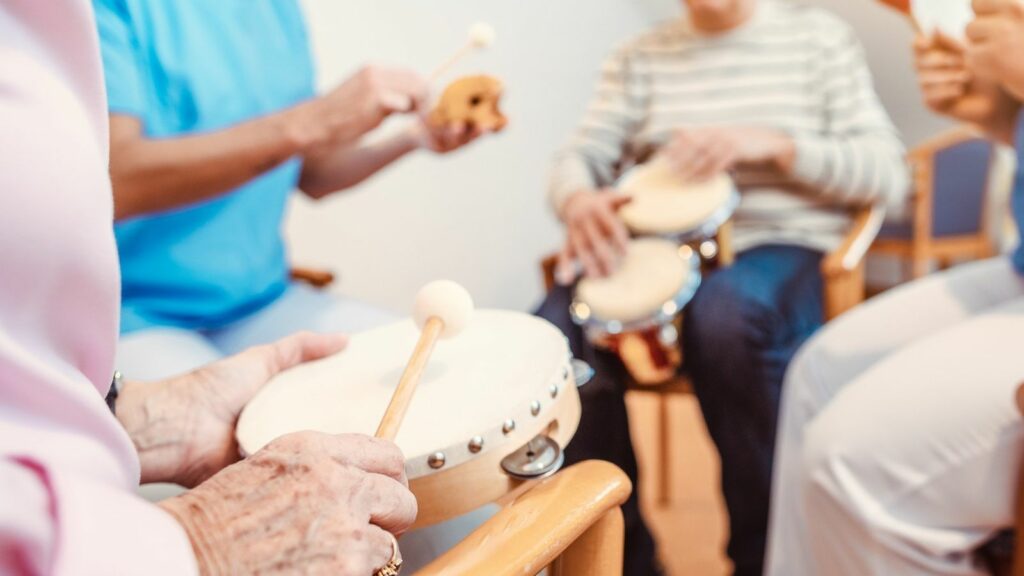
Playing familiar music for memory loss patients is one of the best ways to boost memories, as was true in my personal story at the beginning of this post.
There’s data to back it up, too.
A study conducted by Boston University in 2010, found that listening to music yields more memory recall than any simple conversation.
It may also help in learning new skills or actions!
6. Arts and Crafts
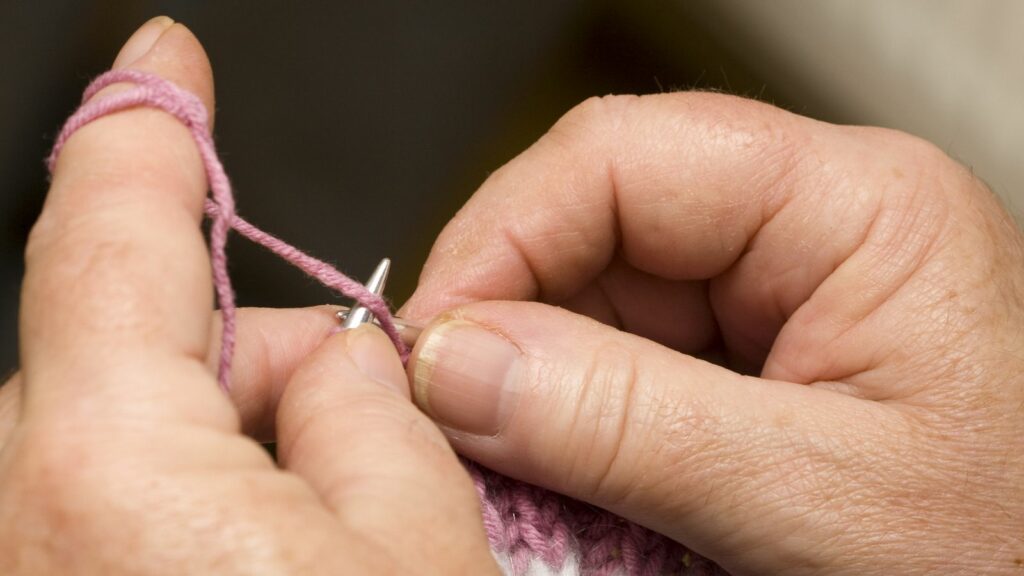
Another excellent sensory activity is to practice arts and crafts.
Many long-term care facilities provide time for pottery, painting, drawing, and knitting, to name a few.
These activities stimulate the senses while promoting creative thinking, which is crucial for continued positive mental health.
Learning new skills is like a workout for our brains. It keeps our minds “in shape” and increases our aptitude to learn more.
Plus, continuous learning can improve confidence, encourage engagement, and even slow down memory loss!
7. Animal Visitation Therapy

Animal visitation is a common form of therapy for Dementia patients.
Being able to pet, hold, or communicate with a cuddly animal is a premier way to boost someone’s serotonin.
This type of sensory therapy can also elicit memories from previous experiences, like their pet companions from years ago.
Even if it’s fleeting, those instances of memories are an important part of someone’s journey with Dementia.
8. Bring Nature Indoors
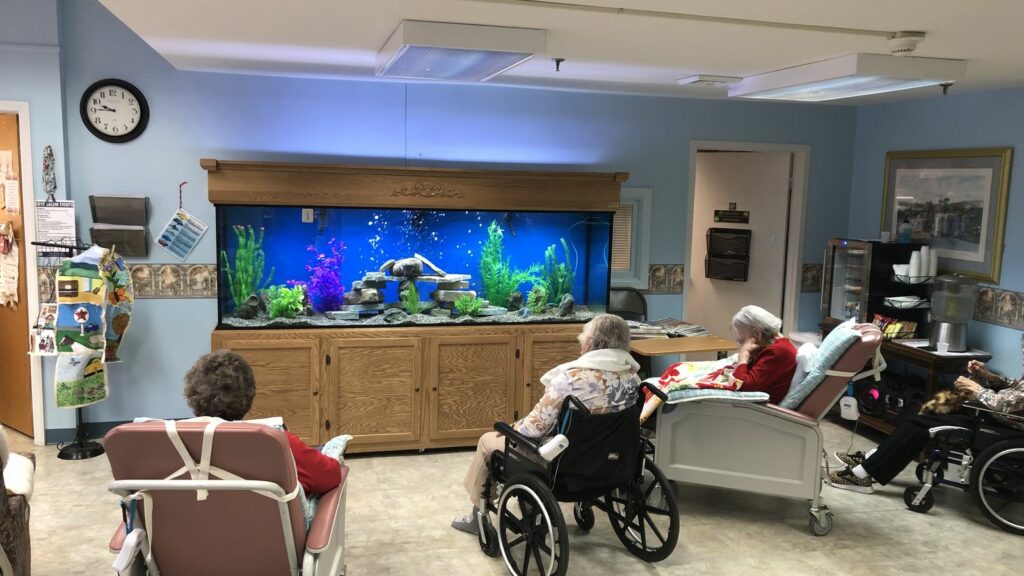
Last but not least, those in nursing homes and memory care units can benefit from nature-focused decor.
Serenity Aquariums and Aviaries, in particular, offer a stimulating yet relaxing activity.
Our living displays have a knack for drawing in and holding attention, decreasing disruptive behaviors, and promoting focus, engagement, and positive mental well-being.
And the residents cherish them! Many relax by the habitat, observe their favorite animals, and engage with fellow residents.
We also visit regularly to keep your display clean and your pets healthy.
Learn About Serenity Services
Additional Considerations for Sensory Activities
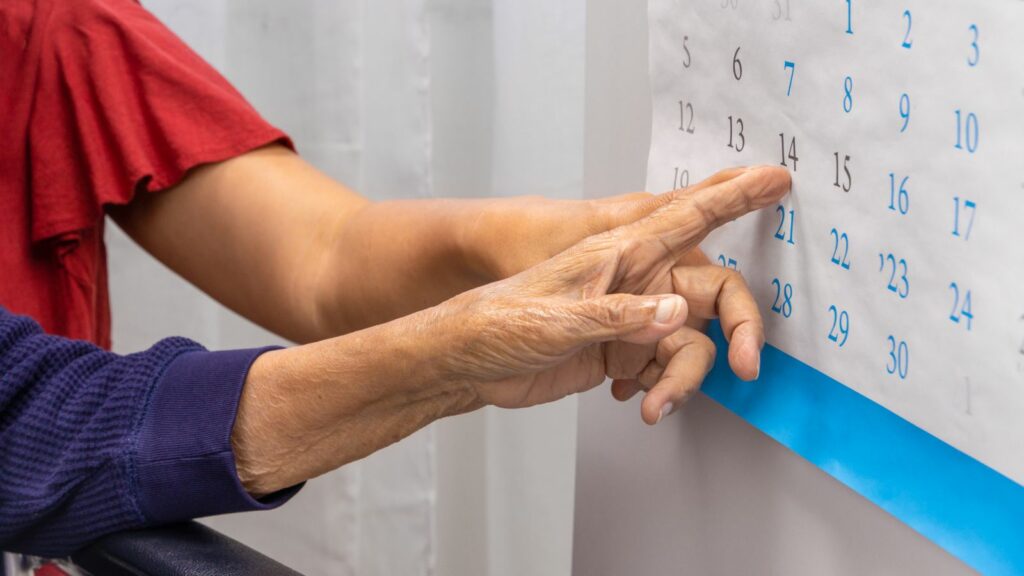
How Often Should You Do Sensory Activities with Dementia Patients?
Just like our bodies, our brains must stay active to remain sharp.
Daily sensory activities that keep the mind occupied are essential for all Dementia patients, regardless of their condition.
It’s been shown that this type of mindfulness training can lessen the effects of Dementia in the short and the long term.
In fact, data shows that continuous activity and learning may prevent or delay the regression involved with Dementia.
Offer Activities Related to Their Interests
You will see the best results (like positive reactions and memory recall) with activities that your patient is interested in.
Maybe this person loves motorcycles. Consider bringing in decorations related to motorcycles or turning on TV shows focused on them.
Or, perhaps bird watching was one of their favorite hobbies.
Bring soft and colorful stuffed birds for them to hold, or take a walk outside to listen and observe them.
Be Careful Not to Overstimulate
The condition of each person is unique and should be treated as such.
Watching an old TV show may bring back positive memories, but a new show with unfamiliar themes may be confusing and stressful.
Also, those with Dementia should be encouraged to connect socially. But if a group is too large, too loud, or talking about unfamiliar topics, they may experience fatigue and agitation.
Try to understand the condition of each individual you care for.
This way, you can devise a plan that gives each member the entertainment they need without overstimulation.
Final Thoughts
Since Dementia is so difficult to prevent, we must know how to provide proper care.
As we’ve laid out in this article, there are many ways to stimulate the senses and create meaningful interaction for people with Dementia.
Offer as many sensory activities as they can handle on a given day and try to cater each activity to subjects they’re interested in.
Seeing their face brighten as they recall a memory, or the confidence they exude when learning a new skill, is an incredible moment.
With regular sensory therapy, these positive instances can happen much more often.